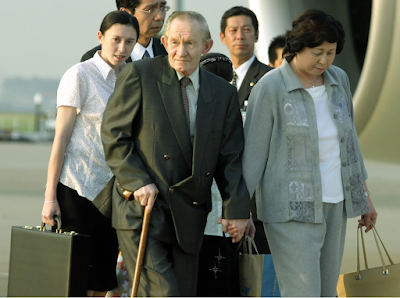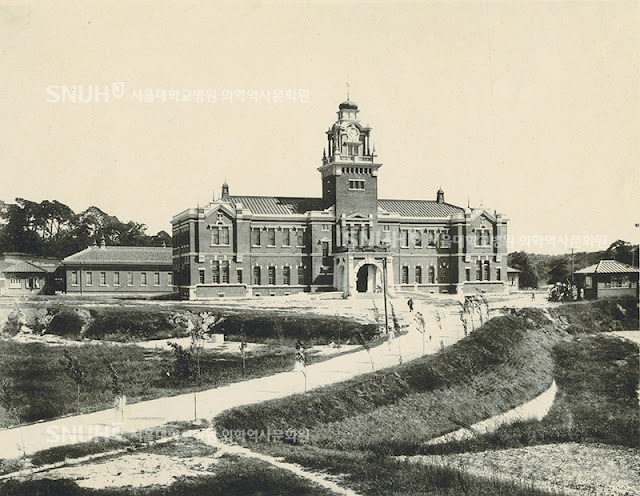Charles Robert Jenkins: An Unexpected Desertion
Charles Robert Jenkins: An Unexpected Desertion
The Early Life of Charles Robert Jenkins
Charles Robert Jenkins, born in 1940 in North Carolina, joined the U.S. Army at the young age of 15. Following two years of service in Germany, he was transferred to the volatile demilitarized zone (DMZ) in South Korea in 1964.
Jenkins' Desertion to North Korea
In January 1965, under the influence of alcohol and fear of being sent to Vietnam, Jenkins made the fateful decision to desert his unit and cross into North Korea. He was apprehended by North Korean soldiers almost immediately upon his arrival.
Life in North Korea
Living in North Korea was marked by hardship and constant surveillance. Jenkins lived with three other American deserters, but they were soon separated, and Jenkins was compelled to live alone. His main duty was teaching English to military officer candidates, but he was also frequently used for North Korean propaganda.
In North Korea, he was subjected to grueling physical conditions and a scarcity of necessities, including food. In 1980, Jenkins was introduced to Hitomi Soga, a Japanese abductee, whom he was forced to marry as part of North Korea's campaign to teach their spies about the Western culture. They went on to have two daughters together.
The Return to Japan
The political climate began to change at the turn of the millennium. In 2002, as part of North Korea's attempt to reestablish diplomatic relations with Japan, Hitomi Soga was among a handful of abductees allowed to return to their homeland. The hope was that their release would pave the way for normalizing relations between the two countries.
In a surprising twist of fate, Jenkins and his daughters were able to leave North Korea in 2004 to join Soga in Japan, under the pretense of a medical visit. They made a brief stop in Indonesia, a country without an extradition treaty with the U.S., before continuing to Japan.
Once Jenkins arrived in Japan, he turned himself into U.S. military authorities, thus initiating a series of legal proceedings. Given the charges of desertion and aiding the enemy, Jenkins could have faced the death penalty under the U.S. Uniform Code of Military Justice (UCMJ). However, considering his prolonged detention in North Korea and public sentiment, he was given a relatively lenient sentence after pleading guilty: a demotion, dishonorable discharge, and 30 days confinement.
New Paragraph: Legal Issues Post North Korea
When Charles Jenkins left North Korea and arrived in Japan in 2004, he was still considered a deserter by the United States military. Desertion is a serious military crime, especially during times of war. Given that the Korean War technically did not end with a peace treaty, but rather with an armistice, the war was technically still ongoing during Jenkins' desertion, and he had been listed as Absent Without Leave (AWOL) by the US Army since his disappearance.
This raised a number of legal issues for Jenkins after he left North Korea:
- Military Court-Martial: Jenkins had to face a military court-martial for his desertion. In a court-martial, the military court has jurisdiction over all crimes committed by soldiers, which includes desertion. He was charged with several offenses, including desertion, aiding the enemy, soliciting other soldiers to desert, and encouraging disloyalty.
- Guilty Plea: In November 2004, Jenkins pled guilty to charges of desertion and aiding the enemy. This plea might have been influenced by the circumstances of his case, including the length of time since his desertion, his age, and the fact that he had a family in Japan who had already suffered a lot.
- Sentencing and Punishment: After pleading guilty, Jenkins was sentenced to 30 days in prison, stripped of his military benefits, and given a dishonorable discharge. The sentence was considered quite lenient, given the seriousness of the charges, and was likely influenced by the unique circumstances of his case.
- Extradition and Legal Jurisdiction: Another legal issue was the question of jurisdiction. The extradition treaty between Japan and the United States may have facilitated the process of his transfer to U.S. military custody. However, Japan had to carefully negotiate this process, as it was also concerned about Jenkins' family, particularly his Japanese wife and their two daughters.
- Pardon or Amnesty: Some public debate focused on whether Jenkins should have been pardoned or granted amnesty, given the unique circumstances of his case. However, no such pardon or amnesty was granted.
- Immigration and Citizenship: After serving his sentence, Jenkins and his family settled in Japan. The legal status of Jenkins, his wife, and their two daughters likely required careful negotiation and consideration, particularly given their unique situation and the fact that Jenkins had been living in North Korea, a country with which Japan does not have diplomatic relations.
Life Post-Trial
Jenkins served his sentence and stayed in Japan with his wife and daughters. He found work in a souvenir shop, and lived a quiet life, becoming a symbol of the complex geopolitical relations between the U.S., Japan, and North Korea. His story was shared with the world in his memoir, "The Reluctant Communist: My Desertion, Court-Martial, and Forty-Year Imprisonment in North Korea", published in 2008.
Conclusion
Charles Jenkins' story offers an intricate view of Cold War dynamics, military justice, and the secretive state of North Korea. His life's trajectory took him from an American military sergeant to a reluctant North Korean resident, and ultimately a resident of Japan. His tale serves as a stark reminder of the human stories often obscured by global politics.




Comments
Post a Comment